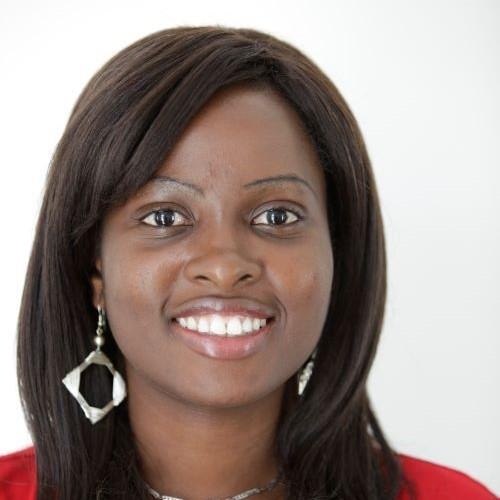Navigating Equitable Coastal Adaptation in a Rapidly Changing Climate: Float, Retreat, or Do Nothing?
–
Online
Free
Open to the Public

As climate change continues to unleash untold misery on human populations by increasing the frequency and intensity of hazards, communities and cities across the world seek new ways to adapt.
Navigating Equitable Coastal Adaptation in a Rapidly Changing Climate: Float, Retreat, or Do Nothing?
Speaker: Dr. Jola Ajibade, Associate Professor of Environmental Sciences, Emory University
Thursday, November 16, 2023
6:00pm to 7:00pm Pacific Time
Online via Zoom (details below)
About the Topic
As climate change continues to unleash untold misery on human populations by increasing the frequency and intensity of hazards, communities and cities across the world seek new ways to adapt. Who can adapt, where we invest adaptation dollars, and how we adapt has significant ramifications for climate justice and social equity. As an urban political ecologist and social activist, I am concerned not solely about how climate change impacts populations or how we adapt but about three crucial issues: 1) how climate adaptation strategies are being used to reshape the metabolism and social fabric of cities often in ways that reproduce a mix of colonial, post-colonial, and neoliberal legacies of injustices. 2) how elite and state-sponsored adaptation programs undermine the everyday adaptation and resilience of marginalized populations; and 3) how communities can collectively create new visions and praxis of just adaptations whether it involves relocation, migration to new regions, or building floating cities. In this talk, I address equity and justice concerns embedded in coastal relocation and the construction of floating cities. I argue that while multiple coastal adaptation strategies are crucial to moderating climatic risks, they must incorporate safe and livable options for diverse communities especially those historically marginalized.
About the Speaker
Dr. Jola Ajibade is an associate professor of Environmental Sciences at Emory University and a scholar-activist who applies both environmental justice and political ecology lenses to study the intersections of climate risk, cascading disasters, community resilience, coastal management, energy transitions, and societal transformations. Her recent research examines how climate adaptation solutions such as managed retreat programs, floating cities, tree planting, blue-green infrastructures, and utopian development projects intertwine with exclusionary planning practices to reproduce structural and historical injustices, thereby exacerbating racial, gender, and class-based inequalities. These injustices, in turn, undermine the capacities of marginalized communities to respond to climatic and socio-economic crises. Dr. Ajibade’s scholarship advances cutting-edge ideas on just urban adaptations by embracing feminist, decolonial, and antiracist approaches as well as care ethics that can lead to more just, livable, and sustainable futures. Her work also promotes partnerships with social entrepreneurs, grassroots coalitions, cooperatives, and small businesses in promoting a shareable economy, sustainable lifestyle changes, low-carbon development, and socially just resilience planning in cities. Dr Ajibade’s work has been featured in many academic journals and media outlets including Science Friday, NPR, Yale Environment 360, Science, New Internationalist, and Vice.
Recommended Reading
- Building just resilient coastal futures: Revisiting the role of climatopias and the equity gap in adaptation (Conference paper), by Dr. Idowu Ajibade, Perry World House Workshop: On Imagine a Just and Climate-Resilient Transboundary Region, University of Pennsylvania, 30 September 2022
- Penning-Rowsell, E. (2020). Floating architecture in the landscape: climate change adaptation ideas, opportunities and challenges. Landscape Research, 45(4), 395-411.
- Carol Farbotko, 2010, “Wishful sinking: Disappearing islands, climate refugees and cosmopolitan experimentation,” Asia Pacific Viewpoint 51(1): 47-60
- Paprocki, K. (2020). The climate change of your desires: Climate migration and imaginaries of urban and rural climate futures. Environment and Planning D: Society and Space, 38(2), 248-266.
- Ajibade, I., Sullivan, M., Lower, C., Yarina, L., & Reilly, A. (2022). Are managed retreat programs successful and just? A global mapping of success typologies, justice dimensions, and trade-offs. Global Environmental Change, 76, 102576.
Zoom Link
https://middlebury.zoom.us/j/93416660930?pwd=RDEvU21PMjkvYmJISjZzWGdUV3MrQT09
Password: NoPlanetB
Meeting ID: 934 1666 0930
Or iPhone one-tap :
US: +16694449171„93416660930# or +16699006833„93416660930#
Or Telephone:
Dial(for higher quality, dial a number based on your current location):
US: +1 669 444 9171 or +1 669 900 6833 or +1 346 248 7799 or +1 719 359 4580 or +1 253 205 0468 or +1 253 215 8782 or +1 305 224 1968 or +1 309 205 3325 or +1 312 626 6799 or +1 360 209 5623 or +1 386 347 5053 or +1 507 473 4847 or +1 564 217 2000 or +1 646 876 9923 or +1 646 931 3860 or +1 689 278 1000 or +1 301 715 8592
Meeting ID: 934 1666 0930
Phone Password: 955312037 (no participant id, press # to bypass)
International numbers available: https://middlebury.zoom.us/u/auz5a5K2C
Questions
The Center for the Blue Economy is a research organization at the Middlebury Institute of International Studies. Our mission is to promote a sustainable ocean and coastal economy (the “Blue Economy”) through leadership in research, analysis, and education. For questions contact: Rachel C. at cbe@middlebury.edu or visit centerfortheblueeconomy.org or call 831-647-4183 (must leave message and receive call back).
Email Notice Reminders?
If you wish to receive email reminders one day prior to the talks (as well as 15 minutes ahead of each event), contact cbe@middlebury.edu with that request and we will “make it so.”
